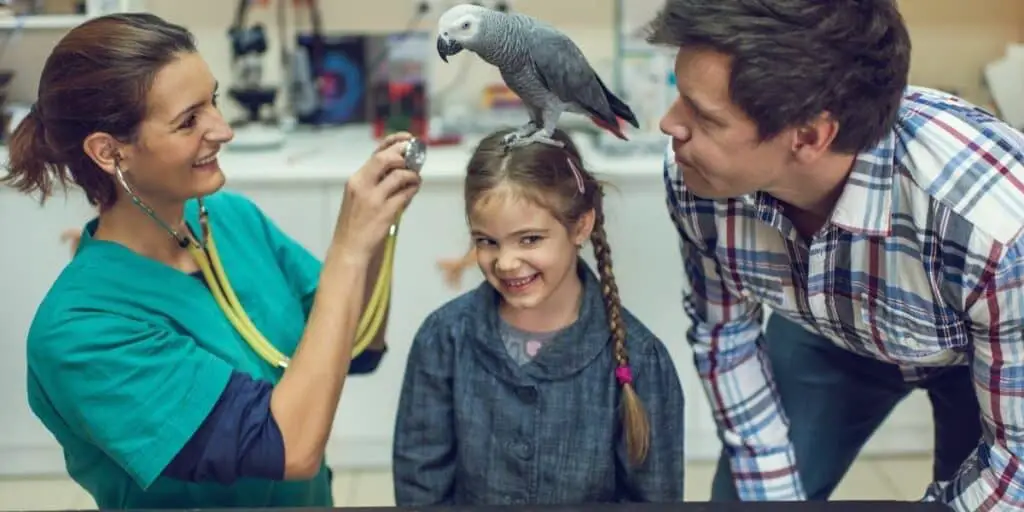If you have recently gotten a new pet bird, you may be noticing that it is exhibiting signs that seem different than what you expected or may be worrying you slightly. You may be thinking that these symptoms seem to be a little like Autism and are wondering if your bird could have this disorder?
Within this article, we will inform you as to whether birds can in fact have Autism and what this might look like. So please read on if you feel like this information could be useful to you.
Table of Contents
So, can birds get Autism?
To begin with, ASD (Autistic Spectrum Disorder) is not something you can “get”, as in it cannot be caught like a disease might. ASD is a disorder that you are born with and is lifelong with no cure in humans.
Whilst birds may exhibit traits that might be similar to Autism in humans, there is no way to test or find out if your pet bird has Autism in the same way humans do, or is simply reacting to a situation the way a bird would normally.Birds will react differently to situations than humans might and most of the signs of Autism in birds are usually due to the birds being in a stressful environment.
What exactly is Autistic Spectrum Disorder?
ASD is a disorder that affects the way in which humans perceive and interact with the world around them, and the people within it. This disorder may impair someone’s ability to communicate or interact with others, for example, someone with ASD may find it difficult to read social cues to tell what emotions someone else is feeling.
Even with decades of research, we still aren’t sure what the exact cause of ASD might be, but it is believed to be something to do with abnormalities within the brain structure and how the brain functions.
In what ways do Birds show similar traits to those of someone with ASD?
There are a number of ways in which birds can seem to show signs of Autism and of course this may be concerning to a new bird owner. You may be wondering if you need to seek additional care for your pet and so we will tell you some of the similarities that can be explained away.
Difficulties with Communication
For new bird owners, you may have noticed that your pet does particularly social or want to communicate with you very often. This could simply be that they are not used to you yet and need to build trust with you in order to flourish.

If you keep up daily contact and try to make your bird see you as part of its flock, you should see your bird open up to you and become a lot more social when you are around.
Repetitive Behavior
You may have found your bird can get stressed easily and may hide in a corner, it could be bobbing its head or pecking something repeatedly and this behavior may worry you.
Usually, this will be because they are stressed, maybe there is a particularly loud noise present or something that they could perceive as a threat. Figuring out whatever the cause might be will allow your bird to calm down and stop this behavior.
It may also just be that they are scared, especially if they are new to your home. So comforting them or handling them may help to calm them down and keep them from hurting themselves.
If you are still concerned about your pet bird and want to get to the bottom of what might be bothering them, it is always advised that you take them to a vet to try and get to the root of the bottom.
A qualified professional is nearly always your best bet for helping diagnose a pet’s issue.
Final Thought
In the end, it is impossible to say whether or not a bird might have Autism, as there is simply not enough research or tests available to find out.
Although they may show similar traits to humans with ASD, a lot of these behaviors can be boiled down to stress or not having a strong enough bond with their owner just yet.
Hopefully, this article has been useful in answering your question and as always with any issues, you might have with your pet, please visit a vet if you cannot figure out what their problem might be.





